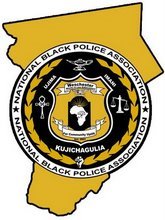The NBPA exists to help law enforcement agencies to be sensitive to the needs and concerns of minorities, women, and the poor. This pamphlet is meant to provide you with information to help you determine if your rights have been violated by the police. You should not use this pamphlet as a legal document. If you feel your rights have been violated, you should seek legal counsel immediately.
It Could Happen To You
What is your name?
Where do you live?
Do you have identification?
These are very simple questions that can be easily answered by almost everyone. But when a police officer is involved, it these questions and the answers that you provide are very important and can cause a lot of problems both for the officer and for YOU.
Most times, there is a reason for the officer to question you -- even if it may not seem so at the time. The officer may be investigating a complaint in the neighborhood or following up on a radio call concerning a crime committed in the area. For these reasons, the police officer may question you. If you are asked these questions by a police officer:
Answer all the questions and always be sure to carry identification with you.
If You Are Stopped By The Police While in Your Car
If you are driving a vehicle, the police can ask you to pull over at any time. The best thing to do in this situation is to:
Pull over and follow the directions of the officer.
You will probably be asked to produce your driver's license and registration of the vehicle. This you must do if asked.
If you are stopped at night:
Turn on your dome light
Make sure your hands are in view of the police officer
Stay calm; show the officer that nothing is wrong
Having your lights on and keeping your hands on the steering wheel will usually put the officer's mind at ease.
Chances are that the officer is going to write out a ticket for a traffic violation. Be careful how you protest. A simple traffic violation may start costing you a fortune in fines for other violations.
If you think that the ticket is incorrect:
Make your complaint at the Traffic Court; do not argue with the police officer.
If You Are Stopped By The Police On The Street
Most of the problems you may encounter with the police can be avoided. Remember, they think they have reason (probable cause) to stop you and ask questions. There are many factors that the police may take into consideration when they decide to stop you. Every situation is different and the officer may consider the following factors:
· If you are hanging around with people under police investigation.
· You are near an area where a crime has just been reported.
· The police believe you are in possession of stolen property.
· Someone else has identified you to the police.
If you are stopped by police:
Collect your thoughts, and remain calm.
Whether or not you are arrested may just depend on how calm and prepared you are at this time.
Know your Rights!!!
Sometimes the manner in which the police question you may involve not respecting YOUR RIGHTS. Sometimes you may overreact to the questions and create an even more serious situation.
Sometimes when a police officer has overstepped his authority and violated someone’s rights he will try to cover-up his mistakes by arresting you. Typically you would be charged with:
· Disorderly Conduct,
· Resisting Arrest or
· Obstruction of Governmental Operations
Again, to avoid arrest:
Remain calm
As a citizen of the United States you are protected by the Constitution. If you feel your rights have been violated you must have a Plan of Action for resolution.
Citizens Plan of Action
If you believe that you are being stopped for no good reason:
Do not debate the issue on the street
Take a deep breath and follow your “Plan of Action”
Step 1: Take notes on the following:
ü Time and day and location of incident
ü Witnesses (name and addresses)
ü Officers name or Badge & car number
ü Violation
Step 2: Contact the Police Department or the local Citizens Complaint Review Board if your city or town has one. Keep a log (time, date and names) of people contacted about your complaint.
It is always good idea to contact local organizations (NAACP, Urban League, ACLU, NBPA) organizations like these can always assist you. They will keep your compliant on file and monitor the outcome of your complaint.
Step 3: If you can afford legal counsel do so. It is always good to send correspondence from legal representation. Sometimes it helps to speed up the process of the investigation into your complaint.
Step 4: Notify your elected officials. Send letters to your Mayor, City Counsel, Legislators, Senators, State Attorney General. Keep records of all correspondence.
Step 5: Make your complaint with the U.S. Department of Justice under the "Police Misconduct Provision" This law makes it unlawful for State or local law enforcement officers to engage in a pattern or practice of conduct that deprives persons of rights protected by the Constitution or laws of the United States.
Saturday, July 5, 2008
Subscribe to:
Posts (Atom)
